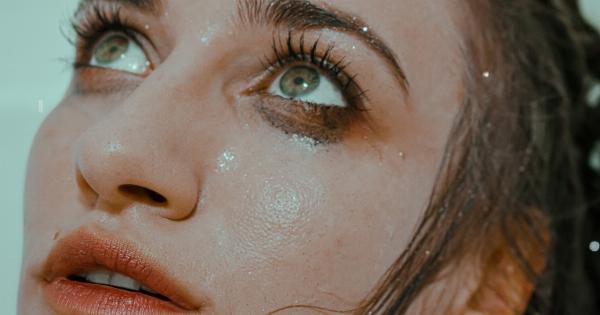Depression is a common mental health disorder that affects millions of people worldwide. it is characterized by persistent feelings of sadness, hopelessness, and loss of interest in activities.
While therapy, lifestyle changes, and support from loved ones can be effective in managing depression, medication can also play a crucial role in providing relief. Here are 9 medicines to consider if you are seeking relief from depression:.
1. Selective Serotonin Reuptake Inhibitors (SSRIs)
SSRIs are one of the most commonly prescribed antidepressant medications. They work by increasing the levels of serotonin, a neurotransmitter associated with mood regulation, in the brain.
Some commonly prescribed SSRIs include Prozac, Zoloft, Lexapro, and Celexa. These medications are typically well-tolerated and have fewer side effects compared to older antidepressant classes.
2. Serotonin-Norepinephrine Reuptake Inhibitors (SNRIs)
SNRIs, such as Effexor and Cymbalta, work by increasing the levels of serotonin and norepinephrine in the brain. Norepinephrine is a neurotransmitter involved in mood regulation and the body’s stress response.
SNRIs are often prescribed when SSRIs fail to provide sufficient relief or when individuals also experience physical pain related to their depression.
3. Tricyclic Antidepressants (TCAs)
TCAs are older antidepressants that have been used for decades. They work by increasing the levels of serotonin and norepinephrine in the brain. While TCAs can be effective, they often have more side effects compared to newer antidepressant classes.
Some commonly prescribed TCAs include amitriptyline and nortriptyline.
4. Monoamine Oxidase Inhibitors (MAOIs)
MAOIs are another older class of antidepressants that work by inhibiting the enzyme monoamine oxidase, which breaks down neurotransmitters like serotonin and norepinephrine.
MAOIs can be effective, but they require careful dietary restrictions to avoid potentially serious side effects. They are often prescribed when other antidepressants have not been effective. Examples of MAOIs include Nardil and Parnate.
5. Atypical Antidepressants
Atypical antidepressants include a diverse group of medications that don’t fit into the traditional antidepressant classes. Examples include Wellbutrin, Remeron, and trazodone.
These medications work on different neurotransmitters and receptors in the brain to alleviate depression symptoms. Atypical antidepressants may be prescribed when other medications have not been effective or when individuals experience specific symptoms that may respond better to these medications.
6. Benzodiazepines
Benzodiazepines are a class of medications primarily used to treat anxiety disorders. While not specifically designed to treat depression, they may be prescribed for individuals who experience both anxiety and depression.
Benzodiazepines, such as Xanax and Ativan, work by enhancing the effects of the neurotransmitter gamma-aminobutyric acid (GABA) in the brain, resulting in a calming effect.
7. Stimulants
Stimulant medications, like Adderall and Ritalin, are commonly prescribed for attention-deficit hyperactivity disorder (ADHD).
However, they may also be used off-label to treat depression, particularly in individuals who experience fatigue, lack of concentration, or low energy levels. Stimulants work by increasing the levels of certain neurotransmitters in the brain, leading to improved focus and energy levels.
8. Ketamine
Ketamine is an anesthetic medication that has recently gained attention for its potential rapid antidepressant effects. Administered in controlled settings, ketamine has shown promising results in individuals with treatment-resistant depression.
It works by targeting the glutamate system in the brain, leading to changes in mood and perception. Ketamine treatment is usually reserved for individuals who haven’t responded to other antidepressant options.
9. Electroconvulsive Therapy (ECT)
Electroconvulsive therapy (ECT) is a highly effective treatment for severe depression that hasn’t responded to other interventions. Although not a medication, it is worth mentioning as a potential option for relief.
ECT involves administering electrical currents to the brain while the patient is under anesthesia. The exact mechanism of action is still not fully understood, but ECT can lead to improved mood and is often used in severe cases or when other treatments have failed.
It’s important to note that choosing the right medication and treatment approach for depression requires a thorough evaluation by a qualified healthcare professional.
They will consider factors such as your symptoms, medical history, and potential medication interactions before recommending the most appropriate option. Medication should always be taken under the guidance of a healthcare provider and in conjunction with other therapeutic interventions, such as therapy or support groups.





























